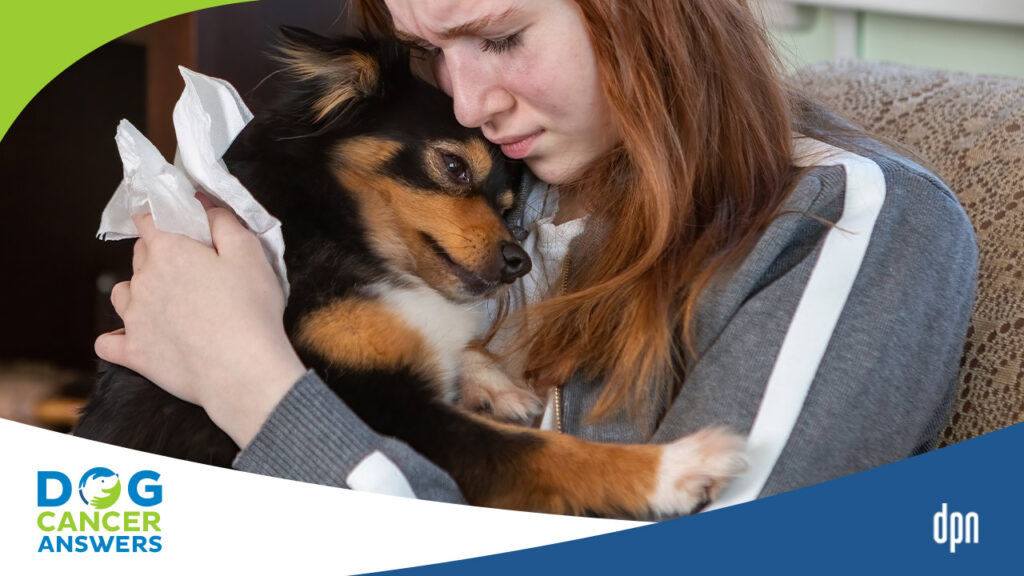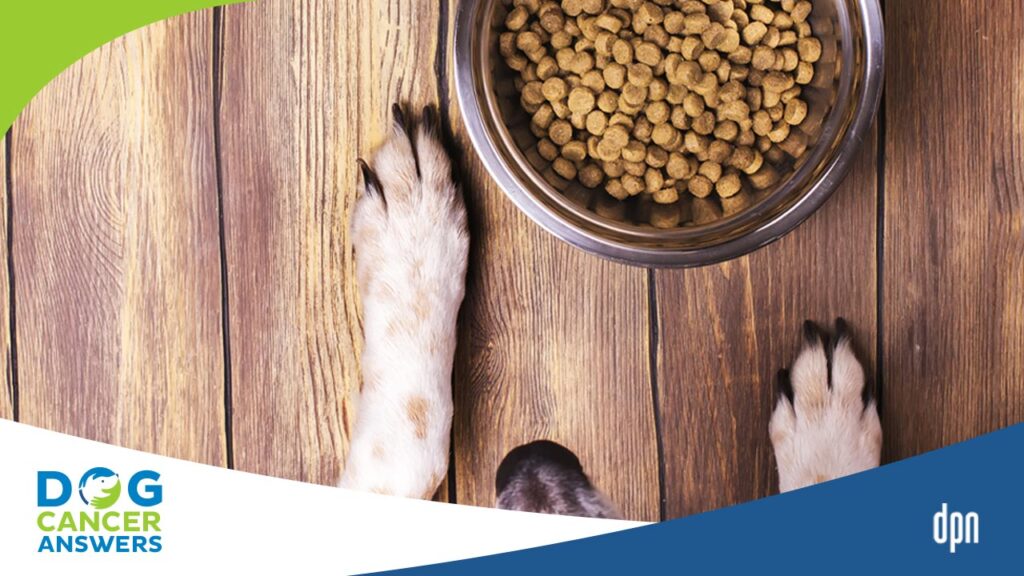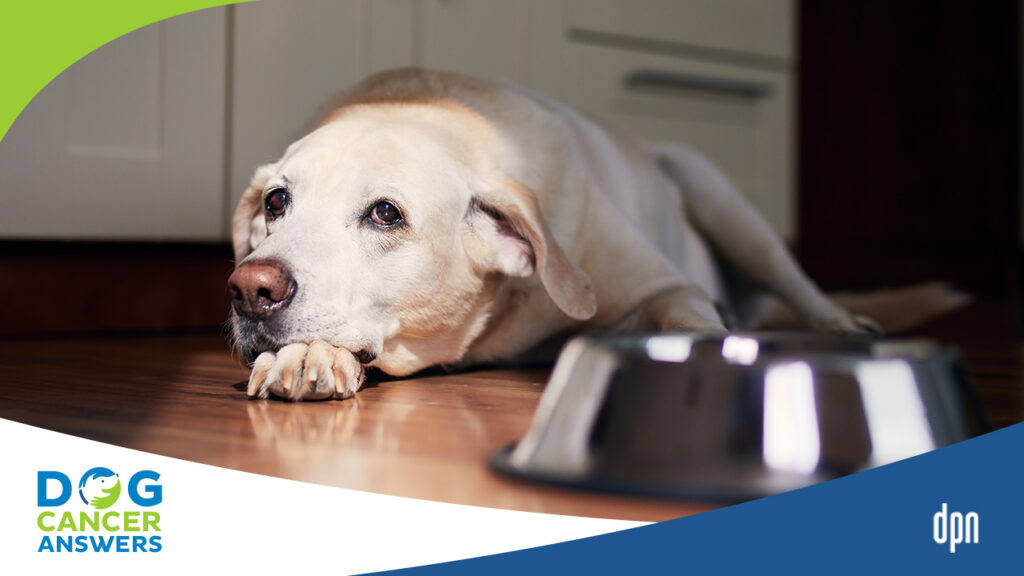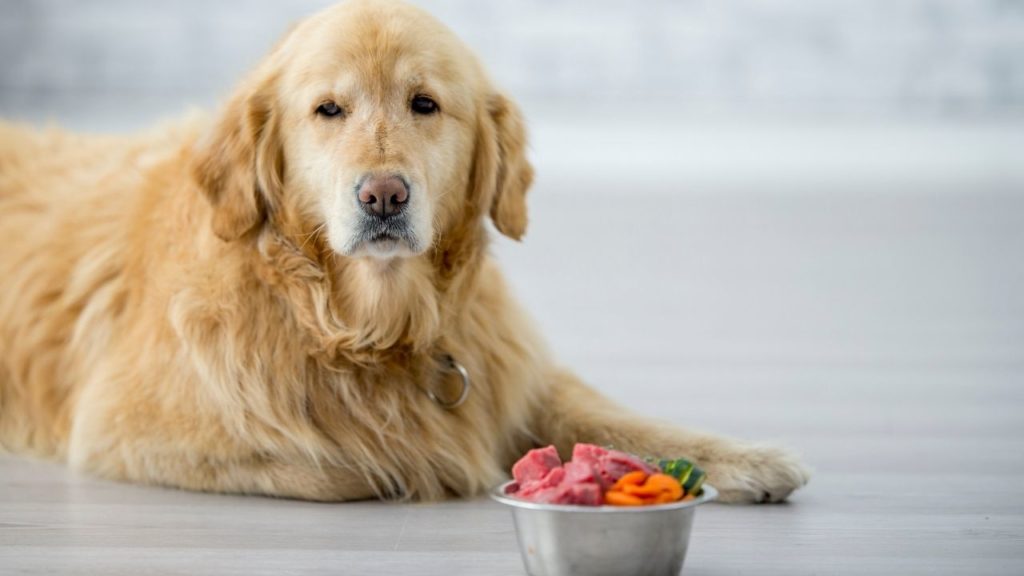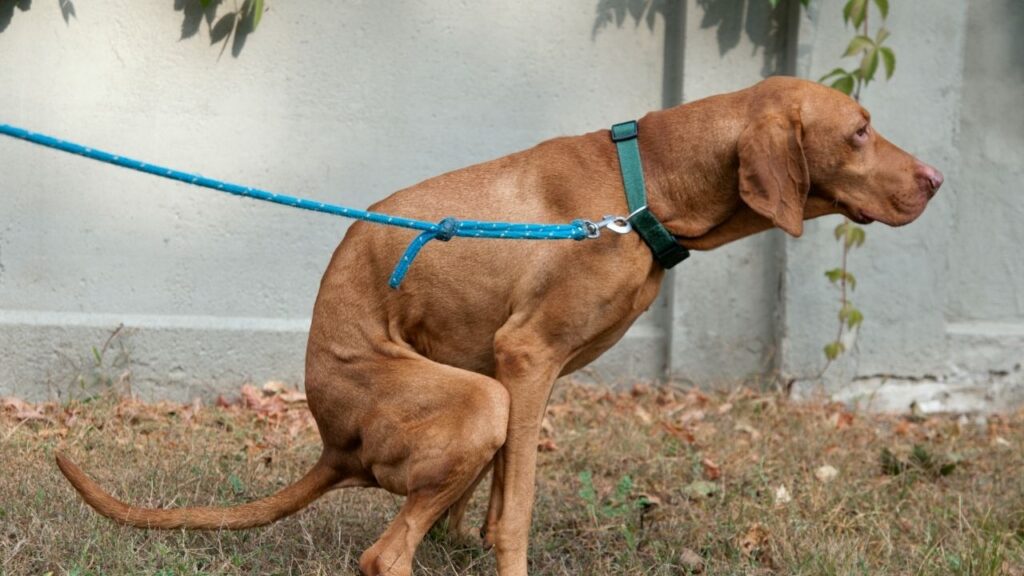While many dogs with cancer will experience a lack of appetite at some point during the course of their disease, there are many medications, special diets, and lifestyle changes that can help address your dog not eating.
Key Takeaways
- There are many reasons a dog may not want to eat. Thankfully, most episodes of decreased appetite only last a short time and do not negatively impact your dog’s quality of life.
- If your dog’s not eating, but is otherwise acting normal, you can try withholding food for 12-24 hours. Then reintroduce small amounts of a bland diet.
- If your dog is running a fever, cannot keep water down, or if inappetence or vomiting persists for more than 24 hours, contact your veterinarian for guidance.
- There are various medications that can help encourage your dog to eat by controlling nausea, increasing appetite, and managing pain.
Inappetence: Dog Not Eating
Inappetence, or lack of appetite, can manifest in various ways.1
- A dog not eating may have complete anorexia (not eating), where they refuse to eat any food offered.
- Others may show hyporexia (less eating), where they continue eating but consume less than their normal amount.
- Others may have changes in the types of food they are willing to eat.
Many of us do not notice changes in our dog’s appetite at first. Sometimes it is very obvious, but other times these changes can be more difficult to spot.
This is especially true in multi-dog households where another dog may help finish up any left-behind food.
If you figured out your dog hasn’t been eating well because they lost weight, you are not alone: it is common for dog lovers to notice weight loss before they see the changes in their dog’s eating patterns.
Why Dogs Stop Eating
When your dog doesn’t want to eat, the first thing you need to determine is why they have a decreased appetite. Unless there are extreme symptoms of distress (see below) you should go into observation mode so you can see what is happening.
Your careful observation at home can help you and your veterinarian determine the possible cause of your dog’s inappetence. The most common cause is either digestive upset or pain.
- If you have ever vomited or been nauseous, you will remember that you probably didn’t want to eat until you felt better. The same is true for our dogs.
- If you have ever been in chronic pain, you may remember how pain can interfere with a desire to eat. When we’re in a lot of pain, it can be difficult to enjoy anything, even food. The same is true for our dogs.
Many things can lead to a decreased appetite in a dog diagnosed with cancer:
- Certain cancers that affect the mouth, esophagus, or stomach, can directly impact a dog’s ability to eat.
- For dogs on chemotherapy, nausea and vomiting are common side effects that may lead to a decreased appetite.2
- Tumor cells can release compounds that decrease appetite and cause weight loss.13
- Medications your dog may be on, such as opioid pain control, can decrease appetite as a common side effect.2
- If your dog is painful in some way (even unrelated to their cancer), they may be unwilling to eat.14
- Like many people, some dogs don’t have a good appetite when they’re not feeling well.3
Dr. Susan Recker explains exactly what to do when your dog refuses to eat.
Common Side Effect of Chemotherapy
Dogs on chemotherapies, including cisplatin, doxorubicin, dacarbazine, cyclophosphamide, actinomycin, and 5-FU streptozotocin, may be more likely to develop nausea and vomiting after treatment.4
It’s important to note that these digestive upset side effects may not occur until 2-5 days post-treatment,4 so if your dog is not eating after chemotherapy treatments – even a few days afterward – it may be due to chemo.
Is Your Dog Not Eating a Sign They Are Dying?
Dog lovers often associate a lack of appetite in their dogs with a poor quality of life.2,9 In the short term, not wanting to eat for a day or two is unlikely to truly affect your dog’s overall life quality.
If your dog stops eating for a day or two, it does not automatically mean he is dying.
Since many episodes of inappetence only last a short time and respond well to medications, special diets, and lifestyle changes, (see below) you may not need to worry about this affecting your dog long-term.4
However, if inappetence is prolonged, does not respond to treatment, or causes a severe decrease in weight, it may indicate a decreasing quality of life. Make sure you have a candid discussion with your veterinarian if you have any concerns about your dog’s quality of life.
What You Can Do at Home to Help Your Dog Eat
There are some simple things that you can try at home to encourage your dog to eat as soon as you notice the problem.
Every dog is different, and finding what works for your dog may take some trial and error.
- Create a calm, distraction-free environment for your dog to eat in.3
- Try warming the food slightly.
- Top the food with something extra tasty, such as a bone broth for dogs (low in salt) or plain, boiled chicken.
- Offer a variety of foods for your dog to choose from. Think of it like a buffet. Offer these separately and mixed, so your dog may choose what they prefer.3
- Try feeding your dog by hand.3
- Dog bowls may still smell of the last meal they held, so you might try using a paper plate instead of a dog bowl to reduce nausea.
If your dog is actively vomiting, they will probably not want to eat until they feel better. Let’s look at how to handle that situation.
How to Handle Vomiting
If your dog is vomiting, your dog will not feel like eating, and you can withhold food for 12-24 hours.5,6 After this period, reintroduce small amounts of water.
If your dog can keep down the water, then offer a few bites of a bland diet.5,6 Good bland diet options include commercial gastrointestinal diets and home-cooked foods such as plain, boiled chicken or cooked plain white rice.5,6
Some medications can help stimulate appetite and control nausea (see below). Talk with your veterinarian to develop a specific plan for your dog.
There is more information on vomiting in this article.
How to Handle Pain
If you think your dog is not eating because of pain, speak with your veterinarian about adjusting your dog’s pain management plan (or starting one).
Remember that pain can come from many different sources, not just cancer. Arthritis pain, for example, can cause your dog not to eat. It’s important to discover the source of your dog’s pain and address it directly.
Once pain is better managed, dogs usually resume eating normally.
The two main causes of a dog not eating are unmanaged pain and digestive upset. Once you know the cause, it is easier to decide what to do.
When to Call Your Vet About Your Dog Not Eating
It can sometimes be hard to decide when to contact your veterinarian when you notice your dog not eating. Is it an emergency?
You know your dog best, so trust your gut instincts and contact your veterinarian if you are concerned about your dog’s appetite. The sooner you get whatever is wrong addressed, the better.
Certainly, if your dog is running a fever over 103°F, if she cannot keep water down, or if inappetence or vomiting persists for more than twenty-four hours, you should contact your veterinarian.5,6
One of the best episodes of DOG CANCER ANSWERS features integrative veterinary oncologist Dr. Trina Hazzah discussing dogs not eating. Lots of insights and tips in here!
Medications that Help Improve Appetite in Dogs
A variety of medications can help with a lack of appetite in dogs.
Appetite Stimulants Including Entyce
Commonly used appetite stimulants include mirtazapine9 and cyproheptadine.
An important appetite stimulant is capromorelin (Entyce®). Entyce is a popular medication that mimics the natural hunger hormone ghrelin, so we’ll discuss it in detail here. 7,8
Entyce is an oral liquid that you can easily give at home. It is well tolerated. A small percentage of dogs experience vomiting and diarrhea.7
Currently, there appear to be limited contraindications for giving capromorelin in dogs with most types of cancer,8 however, further investigation into the interaction between capromorelin and dogs with malignant melanoma and certain types of malignant breast cancer is needed.8
Entyce is commonly prescribed and widely available; your veterinarian can advise whether capromorelin is a good choice for your dog.
Entyce mimics the natural hunger hormone ghrelin, stimulating your dog to eat as naturally as possible.
Anti-Nausea Medications
Since nausea and vomiting are common causes of inappetence, anti-nausea medications often help improve appetite.
Commonly used anti-nausea medications include maropitant (Cerenia), ondansetron, and metoclopramide.9
Oral forms can easily be given at home. For dogs who cannot keep down oral medications because they are vomiting, injectable formulations are also available.
Your veterinarian can advise what anti-nausea medications may be useful as part of your dog’s treatment protocol.
Phew! Veterinary oncologist Dr. Sue Ettinger, AKA Dr. Sue Cancer Vet, explains how even SHE panics when her dog won't eat ... and what she does about it.
Pain Medications
Pain is another common cause of decreased appetite in dogs.14
If you think your dog may be experiencing pain, talk with your veterinarian about developing a pain management plan or tweaking your existing plan.
Short Term Fasting May Be Helpful
In human medicine, evidence is emerging that short-term fasting around the administration of certain types of chemotherapy may help decrease the severity of some side effects, including nausea and vomiting.10-12
While further research is needed, this may be a strategy that could prove helpful in veterinary medicine, and your oncologist may have some suggestions about timing meals on chemotherapy days to take advantage of a fast.
- Burney D, Cook A, Freeman L, Johannes C. Inappetence: Its many forms and clinical management. Clinician’s Forum. https://files.brief.vet/migration/article/45601/cf2017_feb_aratana_digital_hr-45601-article.pdf
- Ettinger S. Take the offensive with patients fighting cancer and inappetence. DVM 360. 2019; 50(8). https://www.dvm360.com/view/take-offensive-with-patients-fighting-cancer-and-inappetence
- Harper S. How to help your dog with cancer when he won’t eat. Dog Cancer Blog. 2020. https://www.dogcancerblog.com/articles/full-spectrum-cancer-care/dog-cancer-diet/how-to-help-your-dog-with-cancer-when-he-wont-eat/
- Ettinger S. Top tips for managing chemotherapy patients in your practice. World Small Animal Veterinary Association Congress Proceedings. 2017 https://www.vin.com/apputil/content/defaultadv1.aspx?pId=20539&id=8506362
- Ettinger S. Helping pets through chemo. DVM360. https://drsuecancervet.com/wp-content/uploads/veterinary-handout-chemo-homecare-480392447-172243613.pdf
- Cornell University—College of Veterinary Medicine. Managing common side-effects of chemotherapy in companion animals. https://www.vet.cornell.edu/research-departments/institutes/sprecher-institute-comparative-cancer-research/treatment-strategies/managing-common-side-effects-chemotherapy-companion-animals
- Zollers B, Wofford JA, Heinen E, Huebner M, Rhodes L. A Prospective, Randomized, Masked, Placebo-Controlled Clinical Study of Capromorelin in Dogs with Reduced Appetite. J Vet Intern Med. 2016;30(6):1851-1857. doi:10.1111/jvim.14607
- Rhodes L, Zollers B, Wofford JA, Heinen E. Capromorelin: a ghrelin receptor agonist and novel therapy for stimulation of appetite in dogs. Vet Med Sci. 2017;4(1):3-16. Published 2017 Nov 6. doi:10.1002/vms3.83
- Walden LA. ACVIM 2017: Chemotherapy-Induced Vomiting and Inappetence. DVM 360. https://www.dvm360.com/view/chemotherapyinduced-vomiting-and-inappetence
- Safdie FM, Dorff T, Quinn D, et al. Fasting and cancer treatment in humans: A case series report. Aging (Albany NY). 2009;1(12):988-1007. Published 2009 Dec 31. doi:10.18632/aging.100114
- Bauersfeld SP, Kessler CS, Wischnewsky M, et al. The effects of short-term fasting on quality of life and tolerance to chemotherapy in patients with breast and ovarian cancer: a randomized cross-over pilot study. BMC Cancer. 2018;18(1):476. Published 2018 Apr 27. doi:10.1186/s12885-018-4353-2
- Zorn S, Ehret J, Schäuble R, et al. Impact of modified short-term fasting and its combination with a fasting supportive diet during chemotherapy on the incidence and severity of chemotherapy-induced toxicities in cancer patients – a controlled cross-over pilot study. BMC Cancer. 2020;20(1):578. Published 2020 Jun 22. doi:10.1186/s12885-020-07041-7
- Porporato PE. Understanding cachexia as a cancer metabolism syndrome. Oncogenesis. 2016;5(2):e200. Published 2016 Feb 22. doi:10.1038/oncsis.2016.3
- Hernandez-Avalos I, Mota-Rojas D, Mora-Medina P, et al. Review of different methods used for clinical recognition and assessment of pain in dogs and cats. Int J Vet Sci Med. 2019;7(1):43-54. Published 2019 Nov 18. doi:10.1080/23144599.2019.1680044
Entyce® is a registered trademark of Elanco US
Cerenia® is a registered trademark of Zoetis US
Topics
Did You Find This Helpful? Share It with Your Pack!
Use the buttons to share what you learned on social media, download a PDF, print this out, or email it to your veterinarian.


